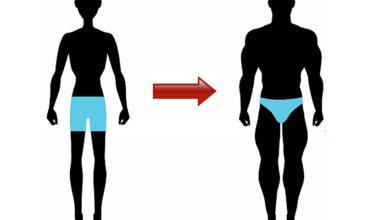How to Start a Mediterranean Diet on a Budget
Mediterranean diet on a budget Discover affordable ways to eat healthy with our money-saving tips and grocery list Start today.

The Mediterranean diet is consistently ranked as one of the healthiest eating patterns in the world, renowned for its heart-healthy benefits and delicious, flavorful meals. While many assume this way of eating is expensive due to its emphasis on fresh produce, olive oil, and seafood, the truth is that with smart planning and strategic shopping, you can enjoy all the benefits of the Mediterranean diet without straining your budget. This guide will walk you through practical, money-saving strategies to adopt this nutritious lifestyle, including budget-friendly ingredient swaps, meal planning tips, and a complete U.S. grocery list to get you started.
Contrary to popular belief, the Mediterranean diet isn’t about expensive specialty ingredients it’s about simple, wholesome foods that have sustained communities for centuries. By focusing on affordable staples like beans, whole grains, and seasonal vegetables, you can create nourishing meals that are both good for your body and your wallet. Whether you’re a college student, a busy parent, or simply looking to eat healthier while saving money, this approach to eating proves that nutritious food doesn’t have to be costly or complicated. The key lies in knowing which ingredients to prioritize and how to make the most of every dollar at the grocery store.
How to Start a Mediterranean Diet on a Budget
Core Principles & Food Groups
The Mediterranean diet is built on traditional eating patterns from countries like Greece, Italy, and Spain, emphasizing balance and enjoyment of food rather than restriction. Its foundation includes Plant-based foods Fruits, vegetables, whole grains (quinoa, farro, whole wheat), legumes (lentils, chickpeas), nuts, and seeds form the bulk of meals. Healthy fats Olive oil replaces butter and processed oils as the primary fat source. Lean proteins Fish and seafood (rich in omega-3s) are staples, while poultry, eggs, and dairy (like yogurt and cheese) are eaten in moderation. Limited processed foods Red meat, sweets, and refined sugars are enjoyed sparingly.
Health Benefits & Affordability
Research shows this diet reduces risks of heart disease, diabetes, and cognitive decline while promoting longevity. Despite its reputation for premium ingredients (like fresh seafood and olive oil), it can be budget-friendly by Prioritizing affordable staples like beans, lentils, and seasonal produce. Using canned or frozen fish and vegetables to cut costs without sacrificing nutrition. Buying whole grains, nuts, and olive oil in bulk for long-term savings. The Mediterranean diet’s flexibility makes it adaptable to any budget while delivering powerful health benefits.
Budget-Friendly Tips for Starting the Mediterranean Diet
Prioritize Seasonal and Frozen Produce
Fresh fruits and vegetables are a cornerstone of the Mediterranean diet, but they can become costly, especially when purchased out of season. One of the easiest ways to save money is by buying produce that’s in season, as it tends to be more affordable and flavorful. For example, tomatoes and zucchini are cheaper in the summer, while root vegetables like carrots and sweet potatoes are budget-friendly in the fall and winter. Another cost-effective option is frozen produce. Frozen fruits and vegetables are often picked at peak ripeness and flash-frozen, preserving their nutrients.
Buy Staples in Bulk
Whole grains and legumes are incredibly affordable, especially when purchased in bulk. Foods like brown rice, quinoa, barley, and oats are nutrient-dense, filling, and versatile, making them ideal for budget-conscious meal planning. Similarly, dried beans, lentils, and chickpeas are excellent sources of plant-based protein and fiber, and they cost significantly less than meat. Buying these items in bulk from stores like Costco, Sam’s Club, or even the bulk bins at your local grocery store can lead to substantial savings over time. These ingredients also have a long shelf life, so you can stock up without worrying about spoilage.
Choose Affordable Proteins
Affordable Seafood Alternatives
While fresh seafood is ideal, canned fish like tuna, salmon, sardines, and mackerel offer the same heart-healthy omega-3s at a fraction of the cost. These shelf-stable options are versatile for Quick meals Toss into salads, sandwiches, or whole-grain pasta. Nutrient retention Canned fish (especially with bones) provides calcium and vitamin D. Convenience No prep needed just drain and use. Opt for versions packed in olive oil or water (not soybean oil) for maximum health benefits.
Economical Land-Based Proteins
Eggs, Greek yogurt, and dark-meat poultry deliver Mediterranean-approved nutrition without breaking the bank Eggs A complete protein perfect for shakshuka, frittatas, or hard-boiled snacks. Greek yogurt Higher in protein than regular yogurt; use in dips (tzatziki), smoothies, or as a sour cream substitute. Chicken thighs More flavorful and affordable than breasts; roast with herbs and olive oil for a Mediterranean twist.
Use Olive Oil Wisely
Extra virgin olive oil is a hallmark of the Mediterranean diet, but premium brands can be pricey. The good news is that you don’t need the most expensive bottle to reap the benefits. Look for store-brand or mid-range olive oils that are labeled “extra virgin” to ensure quality. A little goes a long way, so you don’t need to use large quantities in cooking or dressings. To save even more, consider buying olive oil in larger containers if you use it frequently. Just be sure to store it in a cool, dark place to prevent it from going rancid. If olive oil is still out of your budget, other healthy fats like avocado oil or canola oil can be used in moderation.
Cook at Home and Meal Prep
One of the biggest expenses in any diet is eating out or buying pre-packaged meals. Cooking at home allows you to control ingredients, portions, and costs. The Mediterranean diet is inherently simple, with many dishes requiring just a few fresh ingredients and basic cooking techniques. Meal prepping can also save both time and money. Dedicate a few hours each week to preparing large batches of soups, stews, grain salads, or roasted vegetables. These dishes often taste even better the next day and can be repurposed into multiple meals.
Sample Budget-Friendly Mediterranean Grocery
This budget-friendly Mediterranean grocery list focuses on affordable, nutrient-dense staples that form the foundation of the diet. For produce, prioritize versatile vegetables like spinach (fresh or frozen), carrots, bell peppers, and alliums, along with seasonal fruits such as apples, bananas, and oranges. The grains and legumes section includes cost-effective, protein-rich options like whole wheat pasta, brown rice, lentils, and chickpeas (either canned for convenience or dried for maximum savings).
Read More: How Climate Change Is Affecting Health in the U.S. What You Can Do
Conclusion
The Mediterranean diet proves that eating healthy doesn’t require expensive ingredients or complicated recipes. By focusing on affordable staples like beans, whole grains, and seasonal produce, you can enjoy all the nutritional benefits of this time-tested eating pattern while staying within your grocery budget. Remember that the true essence of this diet lies in its simplicity – fresh, minimally processed foods prepared with care and enjoyed in good company.
As you embark on your Mediterranean diet journey, let cost-saving strategies like buying in bulk, choosing frozen or canned alternatives, and meal prepping become your allies. The beauty of this approach is that it’s sustainable both for your health and your finances. With the practical tips and grocery list provided, you’re now equipped to transform your eating habits without breaking the bank, proving that nourishing your body with wholesome foods can be both accessible and affordable.
FAQs
Is the Mediterranean diet expensive?
No by focusing on budget-friendly staples like beans, grains, and seasonal produce, it can be very affordable.
Can I eat canned fish on this diet?
Yes! Canned tuna, sardines, and salmon are great low-cost protein sources rich in omega-3s.
Do I need expensive olive oil?
A mid-range extra virgin olive oil works perfectly; you don’t need the most expensive brand.
How can I save on fresh vegetables?
Buy frozen or in-season produce and consider store-brand options to cut costs.
Are there cheap Mediterranean snacks?
Yes! Hummus, nuts, yogurt, and fresh fruit make affordable, healthy snacks.











